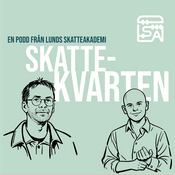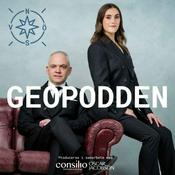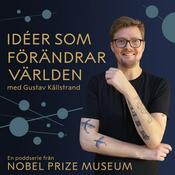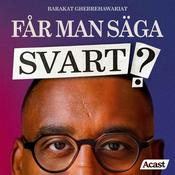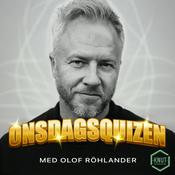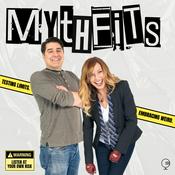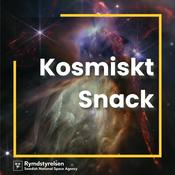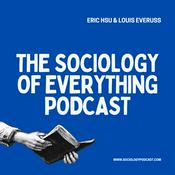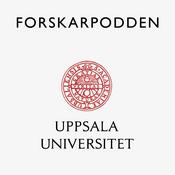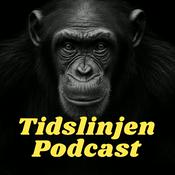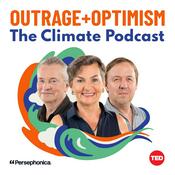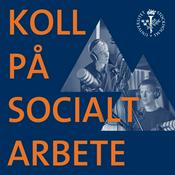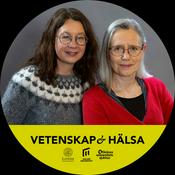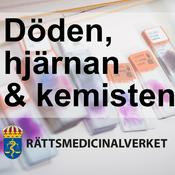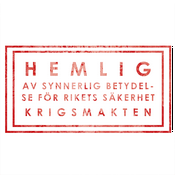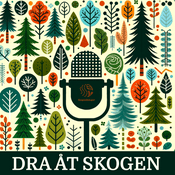Institute for Futures Studies
Institutet för framtidsstudier

Senaste avsnittet
21 avsnitt
- What could be more futuristic on Earth than to discuss about mankind’s possibility to become a multiplanetary species in the universe? Tech visionaries like Elon Musk claim that it would become possible to send 1 million people to planet Mars within the next 2 decades. In response to this, 59 researchers, representing multidisciplinary fields from astronomy, biology, engineering, medicine, law, economy, AI, politics to humanities, have recently published a book that critically and constructively reviews the current visions on colonization of Mars. Dr. Natuschka Lee, one of the contributing researchers, will present a summary of this book and initiate discussions from various perspectives.
Research seminar with Natuschka Lee, microbiologist and an astrobiologist, with a PhD degree in Biotechnology from Lund University, with many years of research experience in Germany and in Sweden. She is a former fellow of Swedish Collegium of Advanced Science and the Alexander von der Humboldt Foundation. Today, she is a researcher at the Swedish University of Agricultural Sciences in Uppsala.
If you wish to receive our newsletters, and invitations to our seminars, subscribe here. - In an era of climate change and geopolitical turbulence democracy faces many challenges. Drawing on his research and recent book, Climate Change and the Endurance of Democracy (Routledge, open access), Lindvall will examine how disasters and extreme weather events have historically affected human reasoning and political agency, and how the climate crisis may shape the future of democratic governance. He will show how such events can contribute to democratic backsliding, but also how they may create new opportunities for social mobilization and democratic revitalization.Research seminar with Daniel Lindvall, researcher in sociology at the Institute for Futures Studies and at the Climate Leadership Initiative at the Department of Earth Sciences, Uppsala University. His research areas are climate and energy transition. Author of the books Folkstyret i rädslans tid and Upphettning - demokratin i klimatkrisens tid. Daniel has been the main secretary for several government investigations such as the 2014 Democracy Investigation.If you wish to receive invitations to our seminars via email, subscribe here. https://www.iffs.se/en/about-us/newsl...
- In this episode Victor Galaz, Associate Professor in Political Science at the Stockholm Resilience Centre, dives deep into what artificial intelligence might mean for climate change. AI is often discussed as a potential “game changer” for climate change action. One key issue in this conversation focuses on the growing energy, water and carbon footprint of AI, and ways to mitigate these footprints. While important, this debate has failed to grasp the wider impacts of “AI” in the climate and sustainability domain, thus leading to a failure to fully grasp – and thus govern – these technologies impacts. In this talk, I will explore the complex and at times deep indirect impacts of AI on climate action and policy. These relate to 1) “AI” as a scientific method (e.g., driving new advances in the climate sciences); 2) “AI” as a consumer product (e.g., embedded in digital products used by people on a daily basis like chatbots and messenger apps); 3) “AI” as a growing and influential political actor (thus shaping climate policies, environmental legislation, and carbon markets).
Victor Galaz is Associate Professor in Political Science at the Stockholm Resilience Centre at Stockholm University, and at the Beijer Institute for Ecological Economics, at the Royal Swedish Academy of Sciences.
Sign up to our newsletter to get invitations to upcoming seminars, events and the latest news from the frontiers of Futures Studies. - We welcome back Lea Ypi, professor and award-winning author of the book Free: Coming of Age at the End of History. Now she returns to present her new book, Indignity: A Life Reimagined. In this work, she investigates the truth about her family's past by tracing the steps of her grandmother through the vanished world of Ottoman aristocracy, the making of modern Greece and Albania, a global financial crisis, the horrors of war and the dawn of communism in the Balkans. Indignity is both about Ypi's personal journey, and about survival in an age of extremes, about what we can truly know about those closest to us, and about the moral authority with which we can judge the acts of previous generations.
Moderator: Gustaf Arrhenius, professor of practical philosophy and director of the Institute for Futures Studies.
If you are curious about Lea's research for this new book, listen to the talk she gave in our research seminar series in 2023.
If you are interested in listening to the conversation Lea had with Gustaf on her book Free, click here. Jason Tucker: Why We Need to Talk About the Global Politics of AI and Healthcare
2025-10-20 | 1 h 14 min.Artificial Intelligence (AI) is frequently promoted as a solution to a broad range of global healthcare challenges. However, behind this promise lies a more complex reality. The development and deployment of AI in healthcare is increasingly intertwined with geopolitical tensions, power asymmetries, and structural dependencies that carry real-world consequences. This seminar examines the most pressing areas where global politics is shaping the current and future role of AI in healthcare. It does so by drawing on the conceptual and empirical findings from Dr. Jason Tucker’s ongoing research project, The Politics of AI and Health: From Snake Oil to Social Good.
Research seminar with Jason Tucker, researcher at the Institute for Futures Studies and an Adjunct Associate Professor at the AI Policy Lab, the Department of Computing Science, Umeå University. He is also a Visting Research Fellow at AI & Society, the Department of Technology and Society, LTH, Lund University.
Fler podcasts i Vetenskap
Trendiga poddar i Vetenskap
Om Institute for Futures Studies
Independent research foundation. We conduct research on issues of great importance for our future.
Podcast-webbplatsLyssna på Institute for Futures Studies, Making Sense with Sam Harris och många andra poddar från världens alla hörn med radio.se-appen

Hämta den kostnadsfria radio.se-appen
- Bokmärk stationer och podcasts
- Strömma via Wi-Fi eller Bluetooth
- Stödjer Carplay & Android Auto
- Många andra appfunktioner
Hämta den kostnadsfria radio.se-appen
- Bokmärk stationer och podcasts
- Strömma via Wi-Fi eller Bluetooth
- Stödjer Carplay & Android Auto
- Många andra appfunktioner


Institute for Futures Studies
Skanna koden,
ladda ner appen,
börja lyssna.
ladda ner appen,
börja lyssna.


